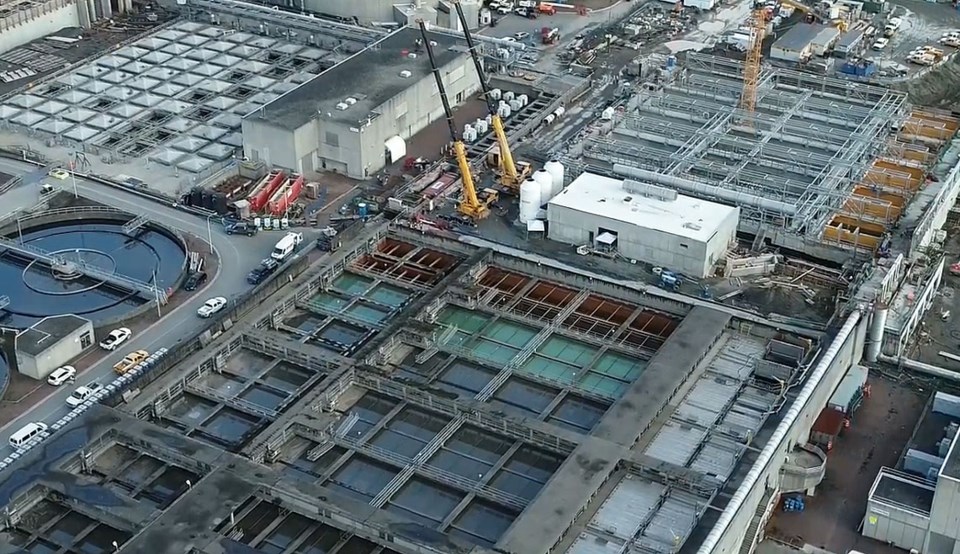The cost has skyrocketed for a pilot project at the Annacis Island Wastewater Treatment Plant in the City of Delta.
Metro Vancouver has been looking at starting a Hydrothermal Processing Biofuel Project and constructing a demonstration facility at Annacis Island.
Hydrothermal processing (HTP) is an emerging technology that can produce low carbon transportation fuels from wastewater biomass.
A staff report to the regional district’s Climate Action Committee notes that if it is proven effective at full-scale, there are a number of potential benefits.
Given its significantly smaller footprint, hydrothermal processing should cost less to build, allow for faster processing time and will dramatically reduce overall residuals, resulting in considerable cost savings when compared against conventional anaerobic digestion, the report notes.
The report adds that the net present value savings of more than $60 million have been conservatively estimated for the technology at the Iona Wastewater Treatment Plant alone.
The savings do not include a monetized carbon price, despite the technology being expected to triple the carbon dioxide offsets compared to anaerobic digestion, according to regional district staff.
The Hydrothermal Processing Biofuel Project previously received $8.25 million in funding from the Liquid Waste Sustainability Innovation Fund (SIF), as well as from external partners.
The SIF was created by the Greater Vancouver Sewage and Drainage District board in 2004 to provide financial support to liquid waste utility projects that contribute to the region’s sustainability.
However, the board was asked to approve additional funding of $6.13 million from the SIF to cover, in part, a shortfall after revised cost estimates.
The balance of the costs would be covered by $5 million of external funds secured from project partners, Parkland Fuel Corporation and the Province of B.C., bringing the total revised estimated cost to $19.38 million.
The first-of-its-kind project involves the design, fabrication, implementation and testing of a demonstration-scale facility to be located at the Annacis Island plant, housed in a temporary enclosure for the purposes of demonstration, which is not envisioned for a full-scale system.
However, not surprisingly, the system had proven to be difficult to scope, according to staff.
“Staff and our design consultants underestimated the initial cost of the HTP demonstration during preliminary design, largely due to the wastewater industry’s unfamiliarity of a thermochemical rather than a biochemical process for carbon conversion. The project team is learning and implementing a number of items to take advantage of potential synergies and take additional steps and include redundancies to adapt HTP for the wastewater treatment setting,” the report notes.
The result of the front-end engineering and design completed in 2020 upped the cost, while a project schedule is extended to 2024.
The report also notes that there are sufficient balances in the SIF to accommodate the expenditure and, given the funds are held in reserves, there would be no impact on the sewer levy.
“The HTP Demonstration Project is gaining international interest as Metro Vancouver received the 2020 Outstanding Subscriber Award for Applied Research and, organizations such as the Commercial Aviation Alternative Fuels Initiative views this technology to align well to their goal of increasing the availability of sustainable aviation fuels,” the report adds.



